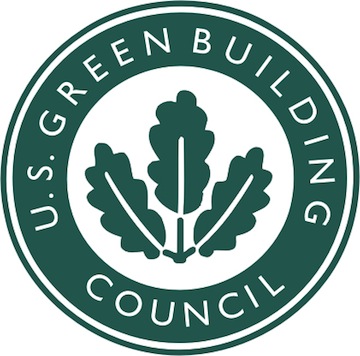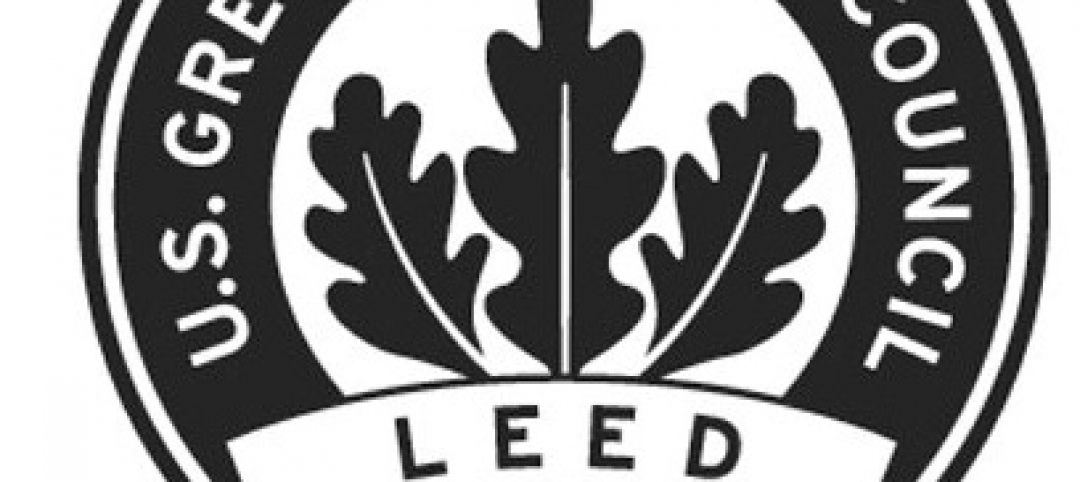The U.S. Green Building Council (USGBC) joined with six major organizations at the UN Conference on Sustainable Development (Rio+20) to announce the Global Initiative on Urban Resilience (GIUR), an effort designed to spur building and infrastructure development, create new investment opportunities, and foster community action around the world. Partner organizations include the C40 Cities Climate Leadership Group; ICLEI International; the World Bank; the Eye on Earth Summit; the Johns Hopkins University School of Advanced International Studies Program on Energy, Resources, and the Environment; and the Earth Council Alliance of Rio de Janeiro.
“Resilience cuts across all issues and sectors, and provides a new and vital dimension to the cause of sustainable development,” said Jason Hartke, Ph.D., vice president of national policy at USGBC. “This initiative will mobilize a new brand of leadership — leadership that advances solutions today while preparing us for the challenges of tomorrow.”
The GIUR aims to create solutions by focusing on urban geographies, identifying the synergies between city governments, nongovernmental organizations, financial institutions, and different business sectors. The report of the UN Secretary-General's High-Level Panel on Global Sustainability, “Resilient People —Resilient Planet: A Future Worth Choosing,” outlines a compelling vision, including 56 specific recommendations as well as a call to action.
“Mayors know the supposed choice between saving money and spending it on climate action is a false one. Mayors know climate change puts their cities at particularly great risk, but they also know there is economic opportunity for cities in the response to climate change. This initiative represents an opportunity for C40 to identify partnerships and resources that can turn plans for adaptation investment into action,” said Jay Carson, executive director of C40 Cities Climate Leadership Group, in partnership with the Clinton Climate Initiative.
The GIUR will focus on eight key areas, but will refine its reach as innovative ideas emerge. These goals of the GIUR are identified as: convene a core group of organizations that will coordinate stakeholders to provide global reach and dimension to the initiative; encourage a resiliency dimension to the green building movement; take a whole-of-urban government approach; develop new incentives for budget action on resilience by local governments around the world; build awareness of resilience as an indispensable precondition to sustainable development; develop harmonized metrics for success to better achieve milestones and outcomes; integrate geographic information systems and geospatial infrastructure into planning and budget decisions; and integrate systems for natural capital accounting, avoiding losses and reducing costs associated with shocks and disasters.
Konrad Otto-Zimmermann, secretary-general of ICLEI Local Governments for Sustainability, representing an association of more than 1220 local government members, observed that, “urban resilience must apply not only to climate change, but to all other shocks and stresses that affect community systems.”
“Building resilient communities worldwide requires innovation and new partnerships, bringing big money to portfolios of green economy projects," noted Dr. David Jhirad, director of the Energy, Resources, and Environment Program at the Johns Hopkins University School of Advanced International Studies and HRH Prince Sultan bin Abdul Aziz Professor in Energy and Environmental Policy.
Said Rachel Kyte, vice president for sustainable development at the World Bank: “We have to change the way we think about infrastructure, agriculture, transportation, water, energy, how communities become resilient and what kind of information we share. We have to help people make infrastructure decisions that will prove resilient far into the future.”
Related Stories
| Mar 2, 2011
New ASHRAE standard may be too broad for the Canadian market
New Standard 189.1 from the American Society of Heating, Refrigeration, and Air-conditioning Engineers (ASHRAE), which goes beyond energy efficiency to include provisions that affect construction, post-occupancy monitoring, and site control, may be too much for the Canadian market—at least for now.
| Mar 2, 2011
Top 10 states for LEED green buildings
According to the U.S. Green Building Council's 2010 list of top 10 states for LEED-certified commercial and institutional green buildings per capita (based on the U.S. 2010 Census information), the District of Columbia leads the nation, with 25 square feet of LEED-certified space per person in 2010. Nevada, being the leading state, has 10.92 square feet per person in 2010.
| Mar 2, 2011
The extraordinary growth of green building—A rebuttal to an article on why green building adoption is slow
In this rebuttal to The Green Building Adoption Rate is Slow, Find Out The Practical Reasons Why, the author argues that in fact the growth rate has been very high and that much of it came during a time of economic unrest and tight capital, which makes it all the more extraordinary.
| Mar 1, 2011
Smart cities: getting greener and making money doing it
The Global Green Cities of the 21st Century conference in San Francisco is filled with mayors, architects, academics, consultants, and financial types all struggling to understand the process of building smarter, greener cities on a scale that's practically unimaginable—and make money doing it.
| Mar 1, 2011
USGBC's new LEED Interpretations similar to old precedent-setting CIRs
This week the USGBC launched its long-awaited LEED Interpretations process and database. LEED Interpretations are like project-specific Credit Interpretation Rulings, but unlike those CIRs, they can be applied to multiple projects. LEED project teams with a unique situation or a question not answered by existing LEED resources have had access to CIRs since 2009, but those CIRs have been limited. With the launch of LEED Interpretations, the USGBC hopes to broaden its scope.
| Feb 25, 2011
Denver excelling in LEED green building development
The mile high city has a decidedly green tinge. The U.S. Green Building Council (USGBC) today noted that nearly 30 projects in Denver have achieved LEED green building certification since 2010 and two of these developments achieved LEED’s highest rating, Platinum.
| Feb 25, 2011
Procter & Gamble will pursue LEED for all new sites globally
Procter & Gamble will pursue LEED certification for all new sites. P&G's Taicang plant in China - which is breaking ground today - is the first P&G manufacturing site to pursue LEED certification, with several additional new P&G sites currently working toward the same distinction globally.
| Feb 24, 2011
Perkins+Will designs 100 LEED Certified buildings
Perkins+Will announced the Leadership in Energy and Environmental Design (LEED) certification of its 100th sustainable building, marking a key milestone for the firm and for the sustainable design industry. The Vancouver-based Dockside Green Phase Two Balance project marks the firm’s 100th LEED certified building and is tied for the highest scoring LEED building worldwide with its sister project, Dockside Green Phase One.
| Feb 24, 2011
New reports chart path to net-zero-energy commercial buildings
Two new reports from the Zero Energy Commercial Buildings Consortium (CBC) on achieving net-zero-energy use in commercial buildings say that high levels of energy efficiency are the first, largest, and most important step on the way to net-zero.








